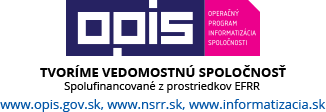Pokračuj v čítaní alebo preskoč na hlavné menu. Iné možnosti: Prejdi na Vyhľadávanie alebo Pätičku stránky.
Pokračuj v čítaní alebo preskoč na hlavné menu. Iné možnosti: Prejdi na Vyhľadávanie alebo Pätičku stránky.
K. Šaško attended informal ministerial meeting on competitiveness in Brussels
Vytvorené dňa: 14.03.2024 Aktualizované dňa: 14.03.2024
State Secretary Kamil Šaško led the Slovak delegation at the informal meeting of competitiveness ministers, taking place on 8 and 9 February 2024 in Belgium, in Genk, a town known for its rich mining history and having transformed into a modern town promoting innovations and green technologies. In their debate, the ministers focused on the orientation of the new EU industrial policy and on providing the guidelines for the new European Commission that will take office following the European Parliament elections. The ministers agreed that new industrial strategy must respect changes in geopolitical realities Europe is facing and must create suitable framework conditions to maintain the European Union enterprises´ competitiveness while respecting regional differences. A strong message the ministers delivered tackled the necessity to enhance the European Union economy self-sufficiency and to strengthen supply chains resilience by reducing dependence on imports of products, raw materials and technologies.
As Kamil Šaško highlighted in the debate: “European policies must tackle urgent problems the entrepreneurs are confronted with, especially high energy prices. In times of crisis, it is necessary to continue with state support for businesses, but in the long term, the entrepreneurs must find adequate conditions in place allowing them to successfully face foreign competition.” According to K. Šaško, apart from the support for businesses, social aspects are not to be forgotten, while transition to a green and digital economy must go hand in hand with raising the living standards of people."
Regarding the links between innovations and industry and building the technological infrastructure, in the debate Slovakia pointed out the importance of a better access to EU funding programmes for businesses, simplifying the registration of rights to protect research results, particularly as regards patents and benefits relating to cross border exchange of experts. K. Šaško drew attention to the problem that innovative companies face when striving to get finances for their products before they establish a market position.
There are ways how to get affordable funding for basic research, which is mostly funded from public sources, however, the critical point being the funding necessary for commercial promotion of product, which needs a private capital. In addition, it is often very difficult to get this in the EU.
The debate of the ministers was ended with a working lunch, where a former Italian Prime Minister Enrico Letta also took part as a guest. Enrico Letta was entrusted with working out an independent evaluation report on the state of the EU internal market.
Press Department of the Ministry of Economy of the Slovak Republic




